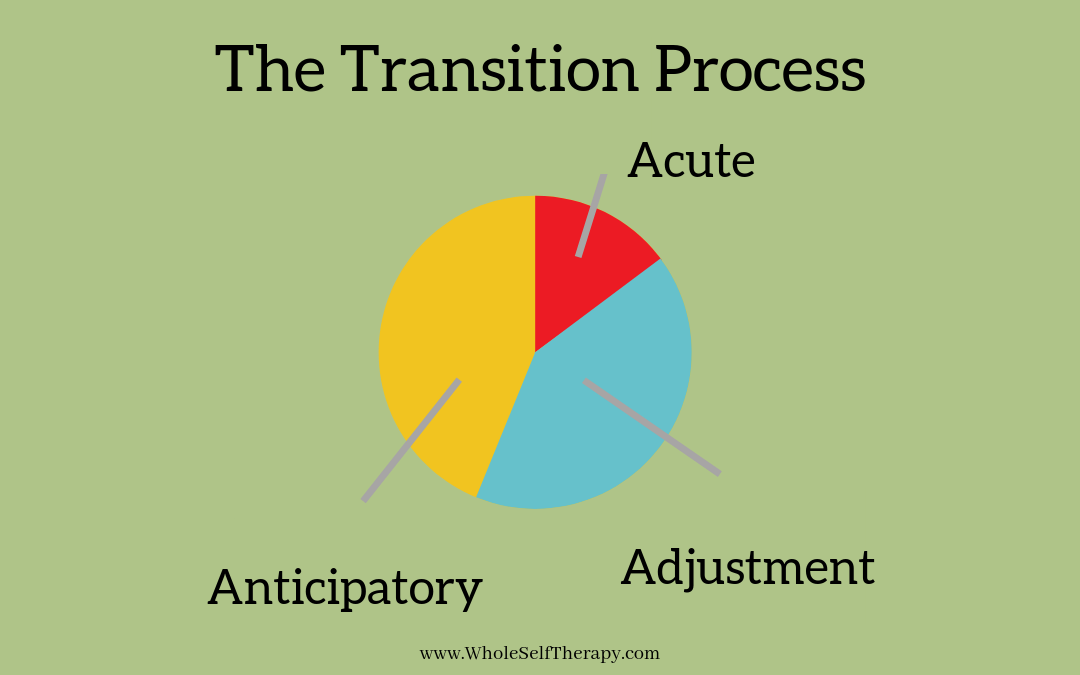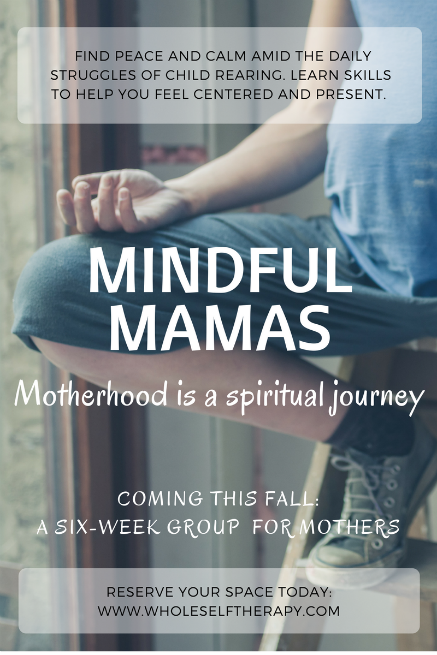
by wholeselftherapy | Oct 27, 2019 | Therapeutic Services
Lately I have had a lot of talks with brave souls, reaching out for support as they endeavor to get clarity and work on themselves. During my free consultation by phone these individuals have expressed some desire about the type of therapist they want.
“Are you the type of therapist that is… interactive?” they ask.
“I want someone who will talk with me, not just sit quietly the whole time.”
“Of course!” is my typical response. Of course you want to have a therapist who is active in the room, who is curious and present and wants to know more. Someone who is eager to understand things in the hopes of shining a light into the unknown parts of your psyche so that both of us can get clear about where things are stuck.
“I’ve only had experiences with counselors who say very little, and that’s really not what I’m looking for. I want feedback and direction. I actually swore off therapy for a long time because of these experiences, but I’m finally willing to give it another shot.”
Hearing stories like these makes me incredibly sad. I know the courage it takes to pick up the phone and say “hey, I am struggling here and I need help.” The courage it takes to go into a stranger’s office and spill the beans about the ways you’ve been doing things you don’t want to keep doing, the ways you are suffering or are clueless about how to remedy things in your own life takes guts. To go through all of that and find yourself feeling alone and without engagement can be deeply disappointing, at best. For individuals that are struggling with feeling isolated or have a long history of not feeling seen or heard, it can be re-traumatizing.
All therapists have their own unique style of relating. Some therapists use modalities that are very directive, such as in the case of cognitive behavioral therapists and dialectical behavioral therapists. Analysts typically say less and listen more. While I do not identify as a “directive” therapist per se, I would say that my style is engaging.
I want to know what’s happening in your life and what you make of it. I want to hear your reasoning and your motivations. I am curious about your thought processes and your belief systems. I am listening for the places your feel well and strong and clear and the places that you harbor fears, uncertainly and self doubt.
I have tools and skills to share when you are ready to begin to make changes and try something new.
As an engaging therapist, I very much want to connect with you and, together, do the important work of exploration and growth.

by wholeselftherapy | Sep 17, 2019 | Asheville, Therapeutic Services
The word holistic has become ubiquitous over the past ten years. But what does holistic therapy really mean?
According to Dictonary.com, here’s the definition of holistic:
Holistic – (adjective)
- Incorporating the concept of holism, or the idea that the whole is more than merely the sum of its parts, in theory or practice:holistic psychology.
- Medicine/Medical. identifying with principles of holism in a system of therapeutics, especially one considered outside the mainstream of scientific medicine, as naturopathy or chiropractic, and often involving nutritional measures: holistic medicine.
The Whole Is More Than The Sum of Its Parts
As it applies to my counseling practice in Asheville, holistic therapy takes three forms:
1. The fundamental viewpoint that sees all individuals as whole, complete, unbroken and innately capable of healing. the knowledge that all people are more than the sum of their parts. Everyone contains an essence that is uniquely their own; everyone has a soul. Regardless of the anxiety, depression, confusion, stuck-ness, overwhlem or neurosis that you are dealing with right now, I know that you also have the capability to feel calm, clear, confident, at peace and joyful.
2. The process and methods used in the psychotherapeutic process by the therapist. For me, this is exemplified by my taking an eclectic approach to the therapeutic relationship. In my fifteen years experience working with individuals, I have come to know that not everyone responds well to the same modality. Nor should they. People have different interests and experiences that lead them to develop preferences. For some, an evidence-based methodology that has been tested via research studies and is scientifically proven to help heal is what works best.
For others, it is the relationship they have with their therapist that makes the greatest impact.
The methods I use with my clients vary, and are informed by what my clients are open to, interested in, and willing to try. I often will use highly experiential techniques including dialogues, imagery exercises, dreamwork, and mindfulness meditation. I will also incorporate more traditional modalities including cognitive-behavioral techniques depending on what my client needs and my assessment of their needs.
3. Not pushing meds. While I am not a medication manager and my license does not allow for me to prescribe medications, I also do not tend to express a strong preference for my clients to get on meds as the solution to all ails. To be clear: there are certain circumstances in which I feel medication can help. When that is the case, I bring it up, and we talk about that possibility. But that is not my first suggestion.
My aim is to support the amazing people I get to work with to find balance and well-being in their lives. If that includes medication for a period of time, fine. If it doesn’t, that is also absolutely fine. I always stress the importance of still doing the work of healing, which is not the same thing as taking a pill. You can do both.
If it sounds like we could be a good fit and you’d like to explore working with me in my Asheville, holistic therapy office, reach out today.

by wholeselftherapy | Jul 23, 2019 | Therapeutic Services
In the course of a human life-span, there are so many transitions to contend with. Most of us will transition, as children, from one school to another. Many of us will move from one home to another, sometimes it will be a ‘big move’ to another state. About half of us will deal with the divorce of our parents in childhood.
As adults, we often have major transitions to college and into the working world. At these times we are thrust into a new world that demands that we find new resources: new people to depend on, new grocery stores to find our sustenance, new schedules and daily routines. We may have to find new ways to relate if we are in an entirely different culture.
In any transition there is often an anticipatory period, an acute period of active transitioning and an adjustment period.
In the anticipatory period we are contemplating the transition and planning for the change to come. This phase can take weeks, months, or years. When the transition is a sudden death or unexpected situation, we skip this phase.
In acute transition we are in the throes of labor and delivery if we are giving birth, we are hauling boxes and furniture if we are moving, we are signing a marital license and saying our vows if we are getting married, or having the difficult conversations about terminating a relationship if one needs to come to an end. The acute phase is the shortest one, but often the most emotionally or physically taxing.
In adjustment, we are working on acclimating to our new life situation. Unpacking – both literally and figuratively – is taking place. Perhaps we enlist the support of a friend or therapist to process the shift and come to terms with what has taken place and how we can reorient ourselves to what is happening now.
When life’s big changes take place, we often lose our rhythm with our coping skills and healthy habits. Due to various factors, we stop doing the things that we generally rely on to keep us grounded or centered.
This is a big part of what makes transitions so hard:
STRESS
Another major factor:
UNCERTAINTY
While smooth transitions are ideal, they don’t always happen. Last minute SNAFUs, delays, and setbacks seem more likely when we’re in the midst of making changes. Uncertainty and the anxiety that it can bring about can be so overwhelming that it can keep us stuck in the familiar, yet undesirable, forever.
Life Transition Therapy in Asheville
If you are finding yourself in a period of transition and would like to talk about what is coming up for you: whether you are seeking closure, clarity, or needing support, I would be happy to help. Contact me today to see if we’d be a good fit to work together.

by wholeselftherapy | May 24, 2019 | Asheville, Couples Therapy in Asheville, Therapeutic Services
Asheville is such a wonderfully unique community. An oasis of open-mindedness and diversity amid an otherwise deeply conservative bible belt. In the abundant therapeutic community we have, your options for providers are many. When it comes to wanting to talk about some of the most intimate aspects of your humanity, your gender identity or sexual life, the provider you choose for counseling can determine the success of your endeavor.
I offer a sex-positive approach, which promotes safe and consensual expressions of sexuality. It is my view that sexuality, in its many forms, is a healthy and life-giving part of our human experience.
Sexual experience is not the same for everyone. Not everyone chooses monogamy. Everyone does not identify as the gender they were assigned at birth. Sexual attraction to the “opposite gender” is not always the case. It is vital to honor these variations in our experience.
I offer gender-affirming care in my psychotherapy practice for individuals that identify as gender diverse, gender nonconforming, transgender, genderqueer, or nonbinary.
In my counseling practice I work with:
- LGBTQIA
- Monogamy and Polyamory
- Kink/BDSM
- Sexual Identity
- Gender Identity
- Transgenderism
- Sexual Self-Esteem and Confidence
- Infidelity
- Sexual Dissatisfaction
As a cisgender female identifying woman (pronouns: she/her/hers) I am aware of my own privilege and I am not an expert on, nor do I truly understand what it is like to be trans or gender nonconforming. However, I do have a deep respect for these experiences and can support, affirm, and hold space for individuals on these journeys.
Also, while I am not a certified sex therapist, and I do not provide couples therapy, I can offer a knowledge base of issues faced by individuals struggling in the areas of gender, intimacy, sexual preference, and anxiety related to sex.
I offer an accepting, non-judgmental space to explore your unique sexuality and challenges you are facing.
Contact me today to see if we’d be a good fit to work together.

by wholeselftherapy | Aug 7, 2017 | Therapeutic Services
So many of us struggle with the daily grind of motherhood. Depending on our children’s ages, it could be exhaustion, maintaining a demanding nursing/feeding/sleeping schedule, lack of family support, emotional meltdowns/tantrums, social obligations, sibling feuds, a general lack of resources, or other life stressors that we find most challenging. While motherhood can be incredibly isolating, it can also be an incredible growth opportunity – a time that we shift our focus and understanding, or our way of showing up in the world.
Coming together in a small group format of 4-6 women, Mindful Mamas will gather weekly to learn about and explore the intersection of Buddhist philosophy and motherhood. Groups are a great way to find connection, validation, and perspective on our life situation. In this six-week group that includes both educational and experiential components, we will cover the following:
- The basics of Buddhist philosophy and how they relate to the everyday challenges of motherhood
- Ways to deal with negative emotional states such as guilt, anger, and worry from a Buddhist perspective
- Mindfulness practices that will best serve you in discovering and maintaining inner calm and presence
As a mother of a toddler and step-mother to both a tween and a teen, I can relate to the need for practices to sustain, nourish, and cultivate the inner calm necessary to remain afloat in the occasionally murky waters that are motherhood! As a Licensed Professional Counselor in private practice, I hold certifications in Buddhist Psychology and Teaching Classical Hatha Yoga. I have been a practitioner of yoga and meditation for over fifteen years and I feel that both my life and the lives of my loved ones are benefitted from these great traditions.
Reserve your spot today or email me with any questions!

by wholeselftherapy | May 21, 2017 | Therapeutic Services
Attachment Therapy in Asheville
In the past year I have been enrolled in and engrossed by a certificate course on traumatic stress, offered by The Trauma Center and The Body Keeps the Score author Besel Van Der Kolk. During weekly lectures, I have learned more about different types of traumatic experiences and ways to work with these experiences in psychotherapy than I would have previously thought possible!
One particular area of my research is something that is referred to under many different names: Developmental Trauma/Attachment Trauma/Interpersonal Trauma/Early Attachment Wounds/Slow Trauma
This is the trauma that results from a lack of attunement in early life experiences, either in infancy or childhood, with our primary caregivers. The experience of neglect, or of absence of care in the tender moments when we most needed attention, support, loving kindness from the adults in our lives, especially when this lack becomes the standard rather than the exception, can be incredibly damaging to the nascent psyche of a child. It is sometimes called slow trauma because it takes place over time, during repeated experiences of not being reassured, held, or supported by a mature adult when we are most in need of care, rather than one specific traumatic event that occurred.
As adults, we can experience the damaging effects of this neglect as feelings of self-doubt, worthlessness, low self-esteem, as a sadness that seem to be without origin, and often, it results in challenges regulating internal states of distress and can lead of chronic anxiety and depression.
A passion of mine is working with individuals dealing with this type of trauma. Attachment therapy in Asheville is best done in person, with a therapist who can co-create a safe space with you to explore the wounds of early childhood.
Through connecting with the inner child that was hurt, deep grieving, and cultivating new practices that support and nurture the Self, we can return to the source of the pain and heal the parts of the self that most need nurturance.






